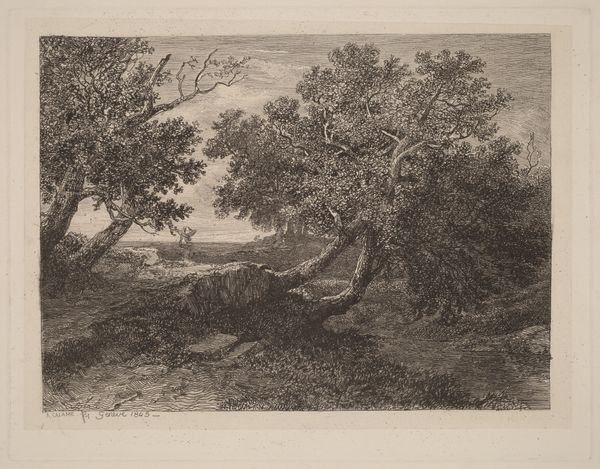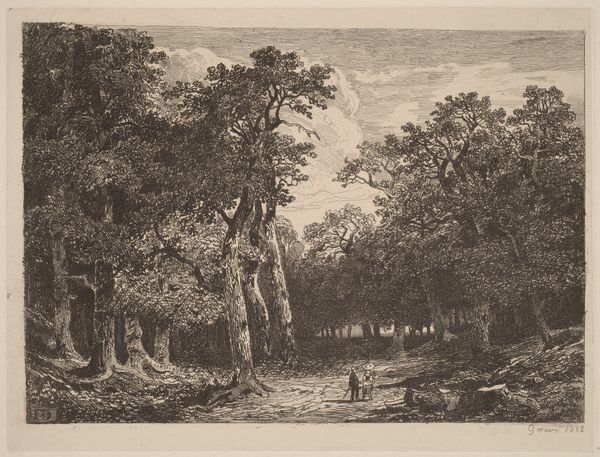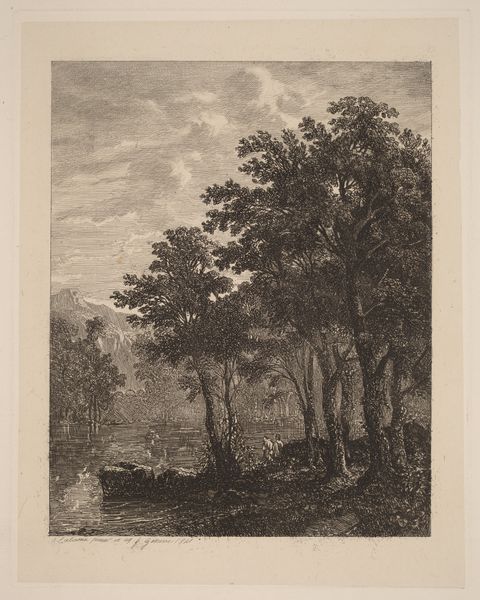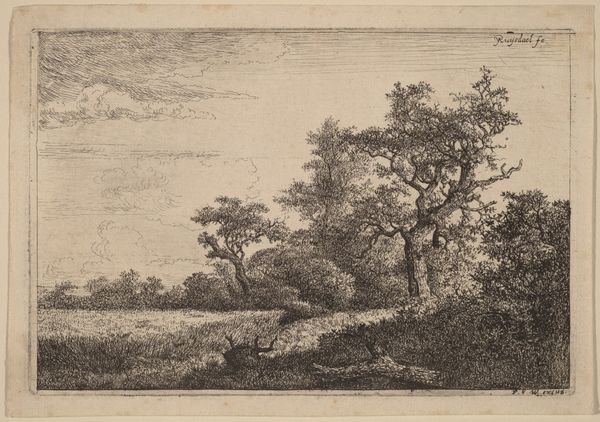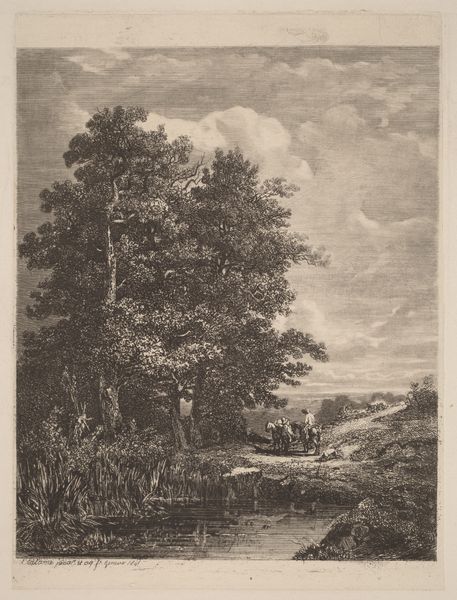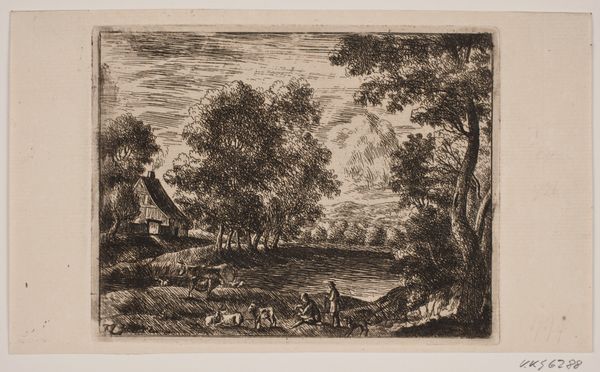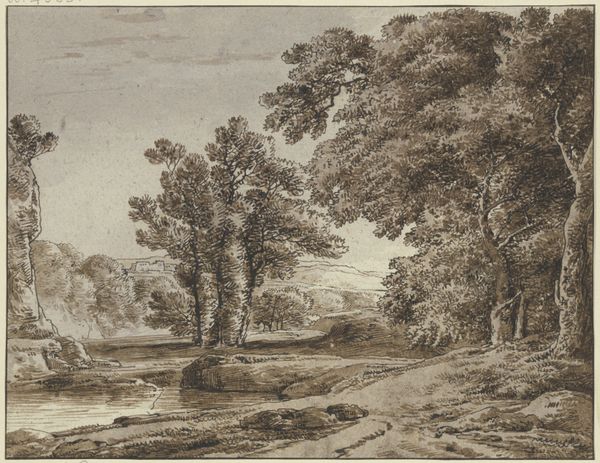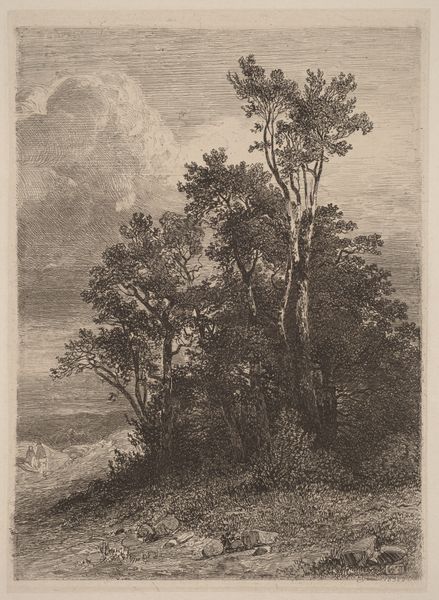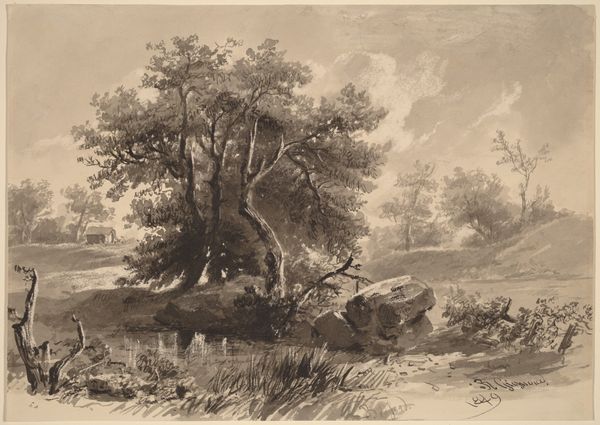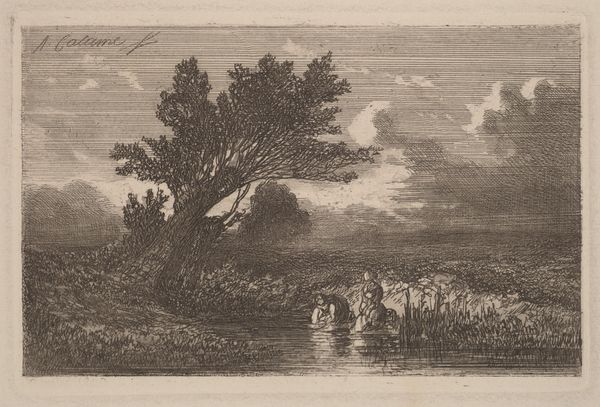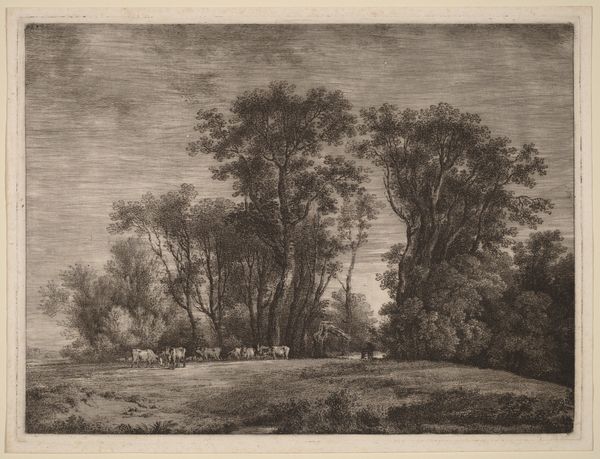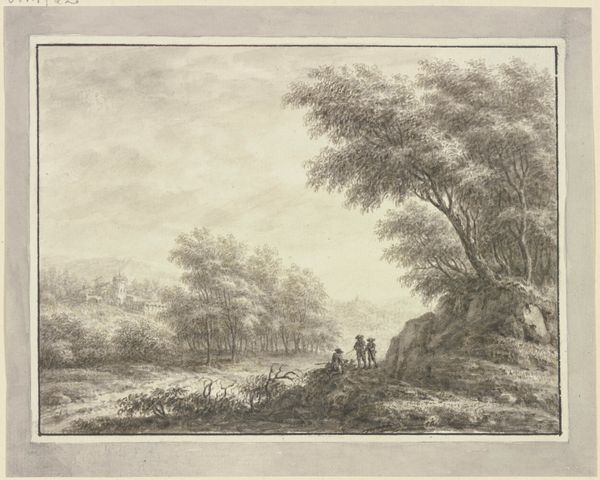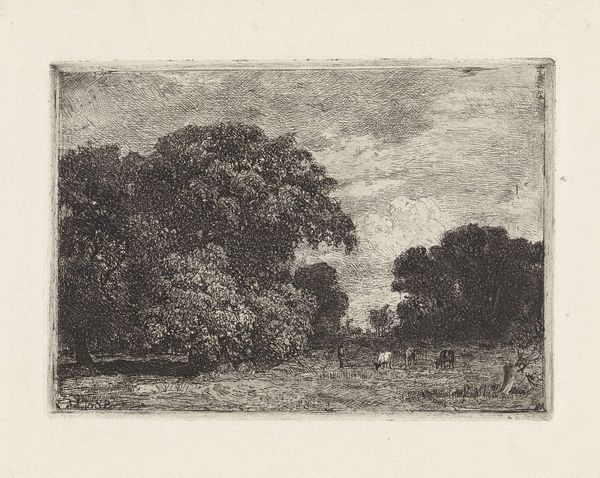
print, etching
# print
#
etching
#
landscape
#
romanticism
#
line
Dimensions: plate: 21 x 27.4 cm (8 1/4 x 10 13/16 in.) sheet: 26.5 x 36 cm (10 7/16 x 14 3/16 in.)
Copyright: National Gallery of Art: CC0 1.0
Curator: This is "Trees in a Storm," an etching created by Alexandre Calame around 1840. Editor: It's funny, I feel both a sense of ominous foreboding and serene calm looking at this piece. It's that classic Romantic tug-of-war, isn't it? Curator: Absolutely. The lone deer in the left corner contributes to that sense of smallness and fragility in the face of nature’s overwhelming power. Landscape paintings in the Romantic era often used such visual cues. The storm itself can represent both chaos and renewal. Editor: Exactly! It’s like nature is just breathing really, really hard. You can almost hear the wind screaming. I’m also drawn to how detailed the trees are compared to the open landscape to the left. It suggests that close, intimate connection with the power and beauty of nature, compared to our experience with the infinite vastness beyond it. Curator: I agree, that foreground is rich with details. And the artist uses line work and etching techniques beautifully. Notice how the etched lines not only define shape, but create a really active, emotional texture across the surface. He almost builds his details out of tiny lines like an elaborate secret code. Editor: The density of the lines around the trees absolutely pulls you in. Like these trees are somehow holding the landscape together against the coming squall. Curator: That echoes Romantic ideas, the tree being a classic symbol of life and endurance. Seeing it this way almost renders nature as a sacred text, which Romantic artists of this era often promoted. The individual versus this immense natural force—a recurring motif. Editor: Thinking about nature as a sacred text actually helps make sense of that peaceful vibe I got earlier. Thanks for that! Curator: Glad to share. This etching invites contemplation on nature’s beauty and the role of humans within it, or even against it. Editor: For me, the work has deepened that constant feeling of being happily insignificant, just for a few moments.
Comments
No comments
Be the first to comment and join the conversation on the ultimate creative platform.
